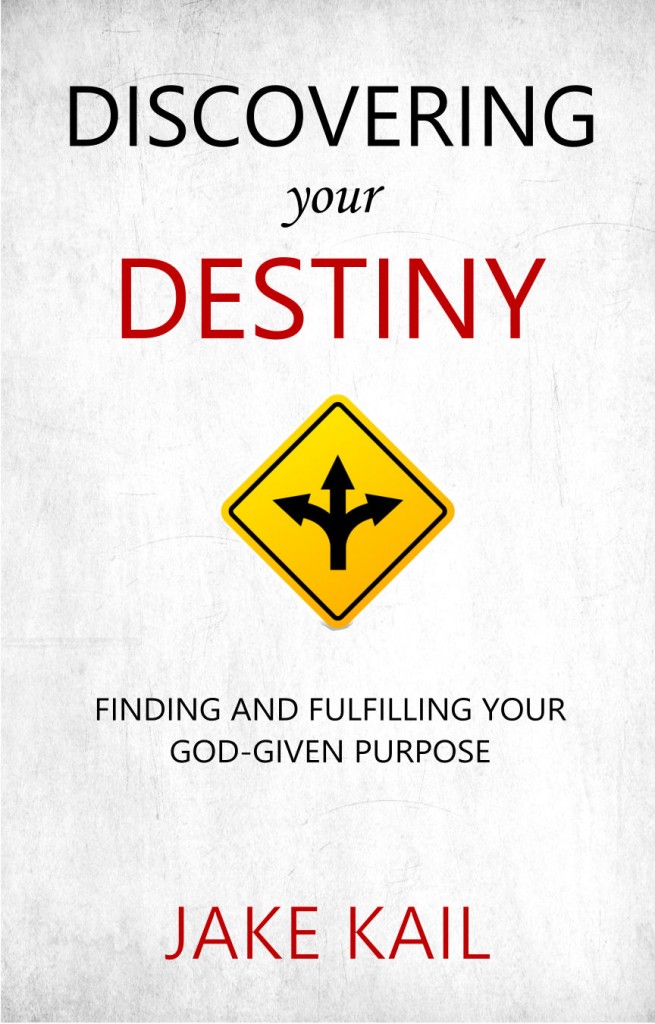
Christians: Stop Trying so Hard to be Non-religious!
April 25, 2016
When God Speaks to You About Your Destiny
May 8, 2016
The following is derived from chapter 3 of my new book, Discovering Your Destiny.
Walking in our divine calling is first and foremost about our relationship with God. Our highest purpose is to know and love God, and walk in obedience to Him. This all stems from our revelation of His love for us. Out of our relationship with the Father, we begin to become secure in our identity as sons and daughters. We also begin to understand the specific characteristics of our identity that are unique to us. And out of our identity flows our destiny. To summarize, our destiny comes from our identity, and our identity comes from our relationship with the Father.
What do I mean when I say that our destiny comes from our identity? Destiny has to do with doing, while identity has to do with being. Destiny is what you do; identity is who you are. But the two are intimately linked together because what you are called to do flows out of who you are called to be.
There are general characteristics about our identity in Christ that apply to all believers. These make up the foundation of our identity and are critical for us to walk in. But there are also specific aspects of who we are that are unique to each of us. These will be discovered over time as we walk with God.
John the Baptist is an example of someone who had a strong grasp on his identity, and therefore his destiny. His interchange with the messengers of the Pharisees in John chapter one gives us insight into this. (See John 1:19-23).
John the Baptist was asked a simple but profound question: “Who are you?” If someone asked you this same question, how would you answer? Do you know who you are? Yes, you are the righteousness of God in Christ Jesus. Yes, you are a son or daughter of the living God. Yes, you are forgiven, redeemed, and loved. We must absolutely be rooted in these general characteristics of our identity, but what about moving on to specifics? Who are you?
Who You are Not
John’s first answer was to declare, not who he was, but who he was not. He said, “I am not the Christ.” When they continued to press him he continued along this vein: “I am not Elijah. I am not the Prophet.”
Having a clear sense of who you are will also mean that you will know who you are not. This is an important point to stress, because knowing who you are—and who you are not—frees you up to be yourself. Without a clear sense of identity, it is easy to fall into the trap of trying to be something or someone that you are not. If you don’t know who you are, you will spend your life trying to be everybody else.
When I first began to sense a calling to full-time ministry, it came in a very general way. I knew God was impressing the call on my heart, but I didn’t know what kind of ministry, what it would look like, or how it would unfold. Was I to be a pastor? A campus minister? Traveling evangelist? Missionary? I really didn’t know.
In those early days of discovering my destiny, I would tend to take on the identity of whatever ministry leader I was learning from at the time. If I heard sermons or read books by a leader who was passionate about prayer, I thought my call must be as an intercessor. If I followed an evangelist, I thought my call was in evangelism. As time passed I began to gain more clarity on the specifics of my purpose and identity. I still love to read books and learn from a variety of people, but I have learned how to glean from others without taking on their identity or their calling as my own.
Who You Are
Getting back to our text, once John the Baptist made it clear who he was not, the questions persisted.
Then they said to him, “Who are you, that we may give an answer to those who sent us? What do you say about yourself?”
-John 1:22
They asked again, “Who are you?” And then another pointed question: “What do you say about yourself?” I love the clarity with which John responded:
He said: “I am
‘The voice of one crying in the wilderness:
“Make straight the way of the Lord,”’
as the prophet Isaiah said.”
-John 1:23
John knew who he was. He was the forerunner of the Messiah, the one who would prepare the way for Him. He even had specific prophetic words to describe his identity and calling. He knew his purpose with certainty, and this helped him to be secure in who he was. When Jesus came on the scene, John was able to decrease so that Jesus might increase (see John 3:30). He did not let the large crowds that were gathering to him to hear him preach and be baptized get to his head. He knew that his destiny was not to be the Christ, but to point others to Him and make the way for His ministry.
I believe that we can all come to a place where we have certainty about our identity and calling. Like John the Baptist, we can answer the questions “who are you?” and “what do you say about yourself?” It is not arrogant to know who you are or have confidence about your calling. How else can we walk out our destiny? Again, this type of clarity and self-definition does not normally come instantly, but over the process of time as we walk with God and grow in Him.
Click Below to Purchase:




